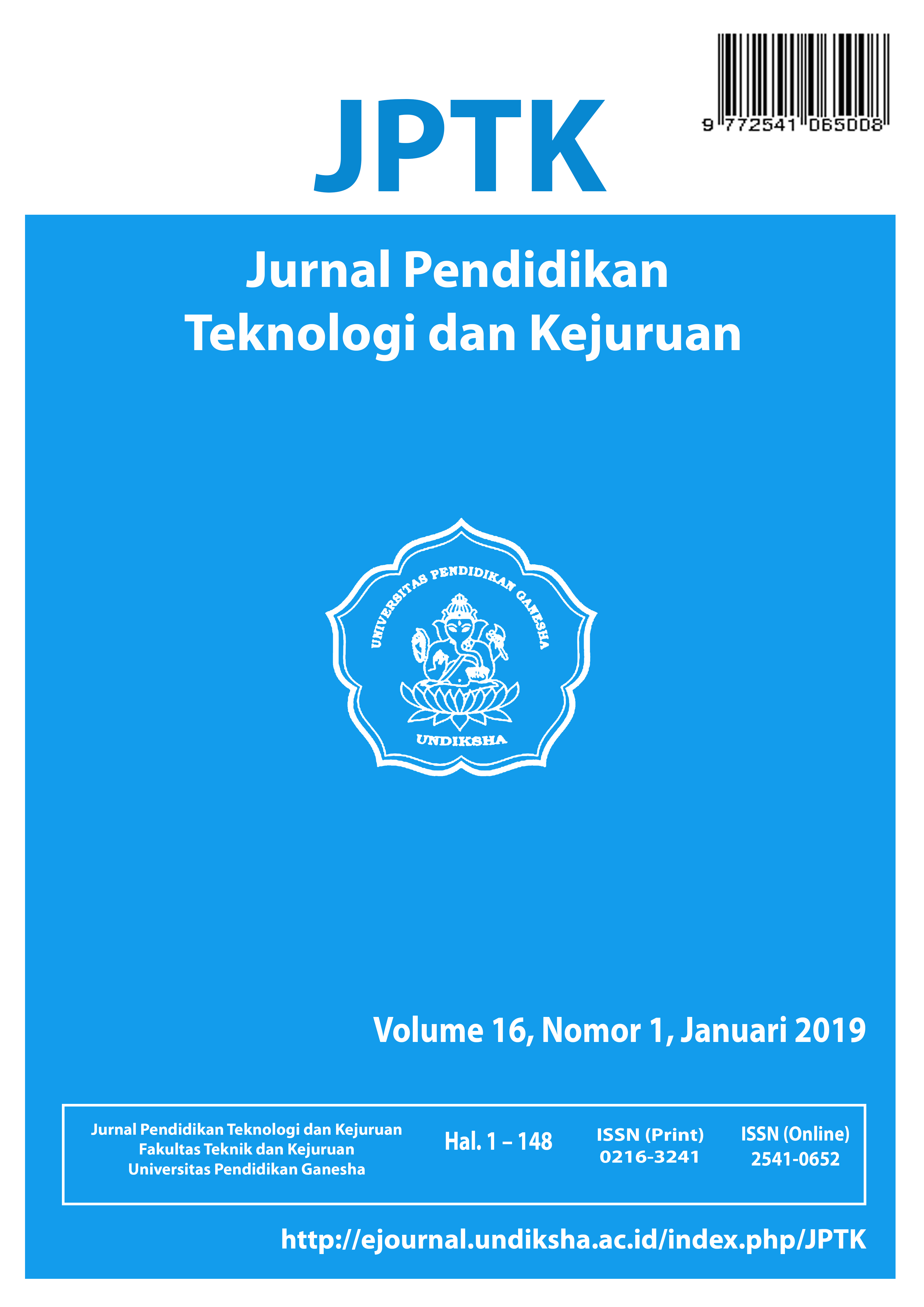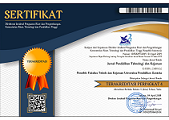PENGUJIAN USABILITY PADA SISTEM INFORMASI PANGKALAN DATA DOSEN DAN KINERJA DOSEN UNDIKSHA MENGGUNAKAN METODE QUESTIONNAIRE AND FIELD OBSERVATION
DOI:
https://doi.org/10.23887/jptk-undiksha.v16i1.16790Abstract
Undiksha has several systems incorporated in e-ganesha, including the Lecturer Database Information System (PDD) and the Undiksha Performance System. This system is used for accessibility of lecturer data and for recording lecturer performance in the implementation of Tri Dharma College. The objectives of this study were (1) to determine the level of usability in Lecturer Database Information System and Undiksha Lecturer Performance Using the Questionnaire and Field Observation Method (2) to find out the recommendations of Lecturer Database Information System and Undiksha Lecturer Performance to increase user satisfaction based on results from the research that will be conducted. The variables measured in this study are effectiveness, efficiency, and user satisfaction. With the Field Observation method to measure aspects of Effectiveness and efficiency, the SUS questionnaire was used to measure aspects of user satisfaction. The sample used was 25 respondents of PNS lecturers who were still active. The results of usability testing on the Undiksha PDD system show that (1) the system is still not effective with an average task completion of 64.96%, (2) the system is not efficient because the user is still confused with the PDD Undiksha system (3) the user is not satisfied using the PDD Undiksha system seen from the results of the SUS questionnaire which is 61.6% less than the SUS standard which is 68%. The results of usability testing in the Undiksha Performance system show that (1) the system has not been effective with an average task completion of 60.16%, (2) The system has not been efficient because many users have not been smooth and still confused using the Undiksha Performance system (3) Users not satisfied with using the system seen from the results of SUS which is 61.5%. Recommendations for improvements provided are derived from the results of video analysis using observation sheets on field observation methods, HCI theory and 8 golden rules, and expert tests and expert input have been carried out.Downloads
Published
2019-01-30
Issue
Section
JPTK
License
Authors who publish with the JPTK agree to the following terms:- Authors retain copyright and grant the journal the right of first publication with the work simultaneously licensed under a Creative Commons Attribution License (CC BY-SA 4.0) that allows others to share the work with an acknowledgment of the work's authorship and initial publication in this journal
- Authors are able to enter into separate, additional contractual arrangements for the non-exclusive distribution of the journal's published version of the work (e.g., post it to an institutional repository or publish it in a book), with an acknowledgment of its initial publication in this journal.
- Authors are permitted and encouraged to post their work online (e.g., in institutional repositories or on their website) prior to and during the submission process, as it can lead to productive exchanges, as well as earlier and greater citation of published work. (See The Effect of Open Access)












